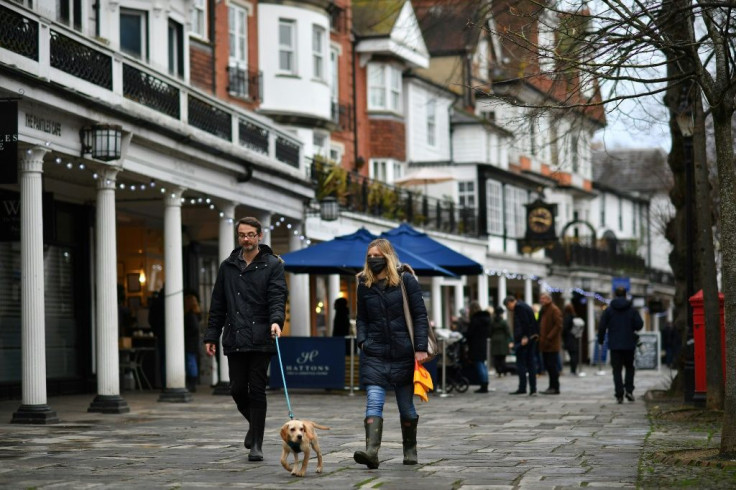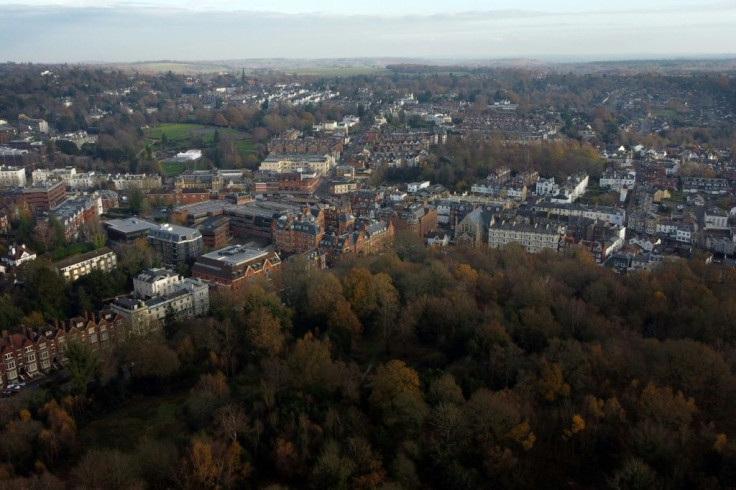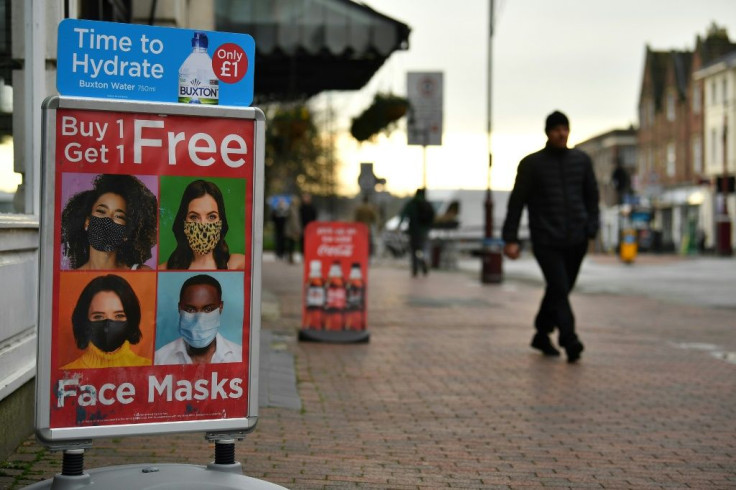Disgusted Of Tunbridge Wells: Anger Over England Virus Curbs
In quintessentially conservative Tunbridge Wells in southeast England, residents are living up to the town's caricatured reputation for perpetual indignation.
This time, the source of their disgust is the government's coronavirus approach when a national lockdown ends next week.
Ministers announced on Thursday that the roughly 118,000 people who call the leafy town and its surroundings home will, from next Wednesday, join more than 23 million people across England under the very strictest virus restrictions.
But unlike many other "Tier 3" areas -- primarily in northern and central England -- Covid-19 rates in the affluent corner of Kent, some 30 miles (48 kilometres) southeast of London, are well below the national average.

The government included it and other parts of west Kent in the "very high" alert level because infection rates in the east of the county, some 40 miles away, are among the worst in the country.
Similar discrepancies have been seen elsewhere in England as Prime Minister Boris Johnson attempts a regional rather than hyper-localised "whack-a-mole" approach to stopping the spread.
But it has irked the upmarket town, which has become synonymous with the phrase "Disgusted of Tunbridge Wells", supposedly a sign-off of a prolific newspaper letter writer which has come to be a catch-all for conservative moral indignation.
"It's like a ridiculous puzzle," local retiree Pat Parrock said of the government's evolving tiered approach to the pandemic as she enjoyed a hot drink with a friend sitting outside in the elegant town centre.
She vowed to keep using her gym down the road in nearby East Sussex, a county with similar infection rates but placed in the more moderate Tier 2 where more businesses will be able to stay open.

The government, though, advises against travel outside Tier 3 areas unless essential.
"They're not going to put roadblocks in, are they?" Parrock wondered out loud.
Her 73-year-old friend Caroline Stedman offered quick reassurance. "We're very law abiding in Tunbridge Wells," she told AFP.

Britain has been Europe's worst-hit country during the pandemic, recording more than 57,000 deaths from some 1.6 million cases.
During the first months-long UK-wide lockdown from late March, a spirit of solidarity enveloped the nation, best demonstrated by the weekly "clap for carers" people took part in from their doorsteps.
Since then, and as the second wave of the virus hit poorer northern and central England worse than the more affluent south, that perceived unity has begun to fray.
The devolved governments in Scotland, Wales and Northern Ireland, which are responsible for their own healthcare policies, have also increasingly adopted their own approaches.
"At least when you had national lockdowns everyone is in it together," said Brandon Moore.
The 23-year-old librarian felt placing the area in the toughest tier was "unfair" but also understandable. Up to a point.
The government has vowed to review the tiers in mid-December and again every two weeks, with Johnson declaring on Thursday: "Your tier is not your destiny -- every area has the means of escape."
But with Tunbridge Wells reliant on infections falling elsewhere in Kent, that rings hollow to Moore.
"We're already not high (in cases). It looks like there's nothing we can do," he added.
Inside The Cake Shop, owner Joe Glenister, 29, confessed he was "disappointed" by the tier decision, after only just reopening his cafe for takeaways following a self-imposed break during lockdown.
"There must be a way of making it more regionalised," he said.
Further along The Pantiles, the main shopping and leisure street, Gemma Buckland, 43, director of a consultancy firm, was doing her best to defy the stereotypes of Tunbridge Wells disgust.
Noting the move to Tier 3 had been anticipated and that the county's hospitals are filling up with Covid-19 patients, she was looking on the bright side.
"It's going to be freer than it was," she said.
© Copyright AFP 2024. All rights reserved.





















